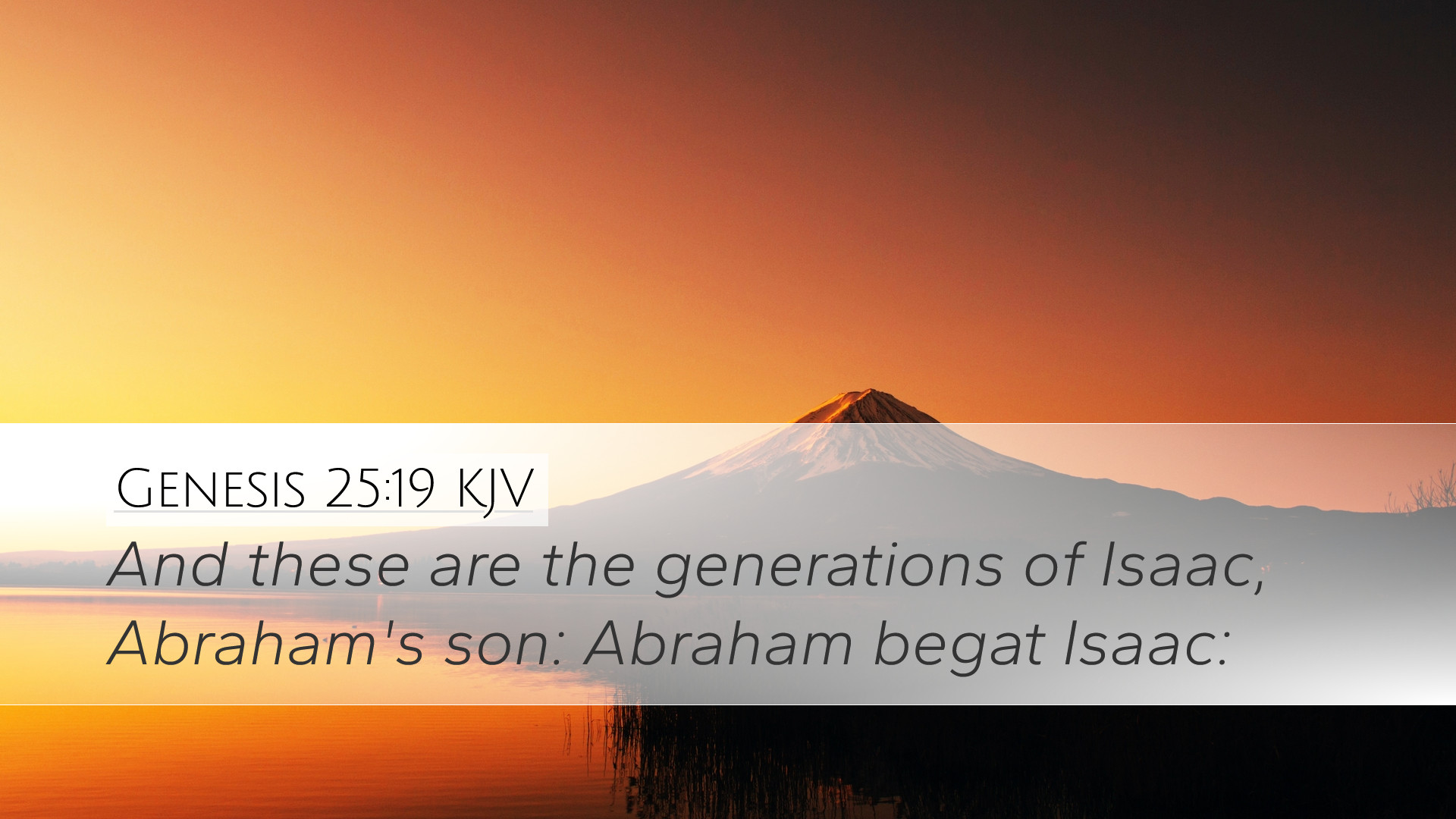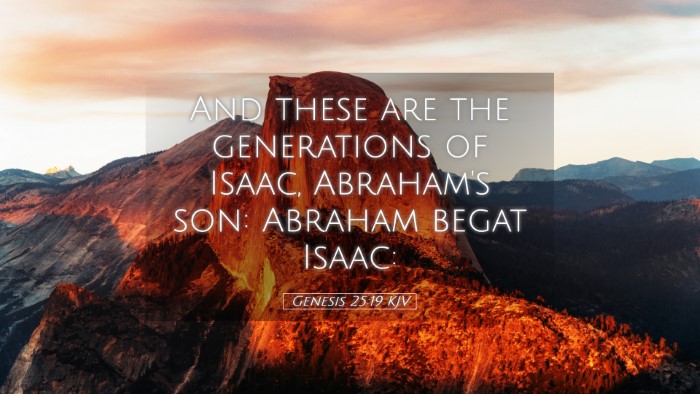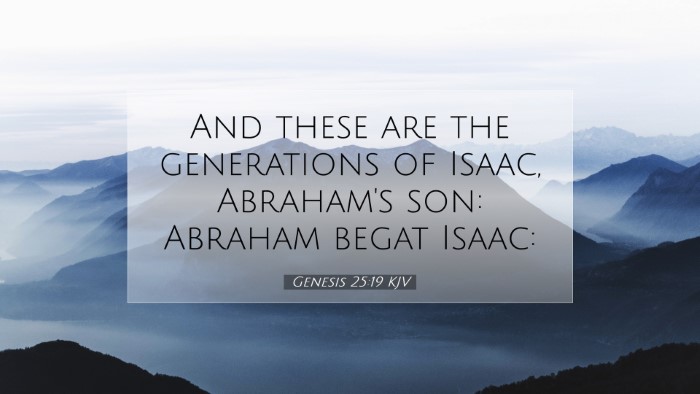Commentary on Genesis 25:19
Verse Reference: Genesis 25:19 - “These are the generations of Isaac, Abraham's son: Abraham begat Isaac.”
Introduction
This particular verse serves as a significant transition point in the Book of Genesis, marking the lineage from Abraham to Isaac. This generational account emphasizes the divine promise made to Abraham and extends into the next phase of God's covenant relationship with humanity through Isaac. The insights from notable public domain commentaries provide a profound understanding of the implications of this lineage.
Historical Context
Genesis 25:19 occurs in the broader narrative concerning the patriarchs of Israel. Isaac, the child of promise given to Abraham and Sarah in their old age, is a key figure in the unfolding covenant of God. The reference to Isaac here not only signifies him as a continuation of Abraham’s line but also as a vessel of God’s promise to bless all nations through his descendants.
Matthew Henry's Commentary
Matthew Henry highlights that this verse initiates a focus on Isaac and the significant promises intertwined with his birth. Henry argues that the term "generations" illustrates God's faithfulness in fulfilling His promises across generations. Moreover, he notes that the phrase "Abraham begat Isaac" is more than a simple genealogical record—it emphasizes the role of Abraham as a patriarch and the spiritual inheritance passed down to Isaac.
Albert Barnes' Commentary
Albert Barnes provides further depth by exploring the broader implications of Isaac's identity. He explains that Isaac encapsulates the continued fulfillment of God's covenant promises to Abraham. Isaac's name is indicative of laughter (reflecting Sarah's initial disbelief), and this irony serves to underscore the miraculous nature of his birth. Barnes suggests that in this verse, there is the indication of the recipient of divine blessings and an example of God's grace working through unlikely situations.
Adam Clarke's Commentary
Adam Clarke elaborates on the genealogical aspect by considering the role of Isaac in God's plan. Clarke affirms that this verse forges a pivotal connection in the holy lineage, where Isaac, as the son of promise, will further the purpose of God. He also discusses the notion of inheritance, both materially and spiritually, arguing that Isaac's birth signifies the culmination of years of divine orchestration to bring forth a nation that would bear witness to God's sovereignty and mercy.
Theological Implications
- Covenantal Continuity: This verse marks a vital continuation of the Abrahamic covenant, reminding readers that God's purposes are carried through generations.
- The Role of the Patriarch: Isaac is positioned as a pivotal figure not just in lineage, but in the unfolding of God's redemptive plan, serving as a precursor to the Twelve Tribes of Israel.
- Divine Sovereignty: The miraculous nature of Isaac's conception accentuates God's sovereignty in choosing whom He wields His promise. This theme resonates throughout Scripture.
Practical Applications
For pastors, students, theologians, and Bible scholars, this commentary provides several practical implications:
- Faithfulness in Ministry: Understanding the importance of lineage and calling reinforces the idea of faithfulness across generations in ministry.
- Hope in Promise: Just as Isaac was a fulfillment of promise, believers are encouraged to look for hope in God’s promises in their lives and ministries.
- Generational Teaching: It underscores the importance of teaching God’s truth to future generations, creating a legacy of faith and obedience.
Conclusion
Genesis 25:19 serves as a profound introduction to the life of Isaac, encapsulating themes of promise, legacy, and divine oversight. The collective insights from Matthew Henry, Albert Barnes, and Adam Clarke provide a rich tapestry of understanding for the faithful reader. As pastors and scholars dive into this text, they are reminded of the careful orchestration of God's plan and the significance of each descendant in the heritage of faith.


